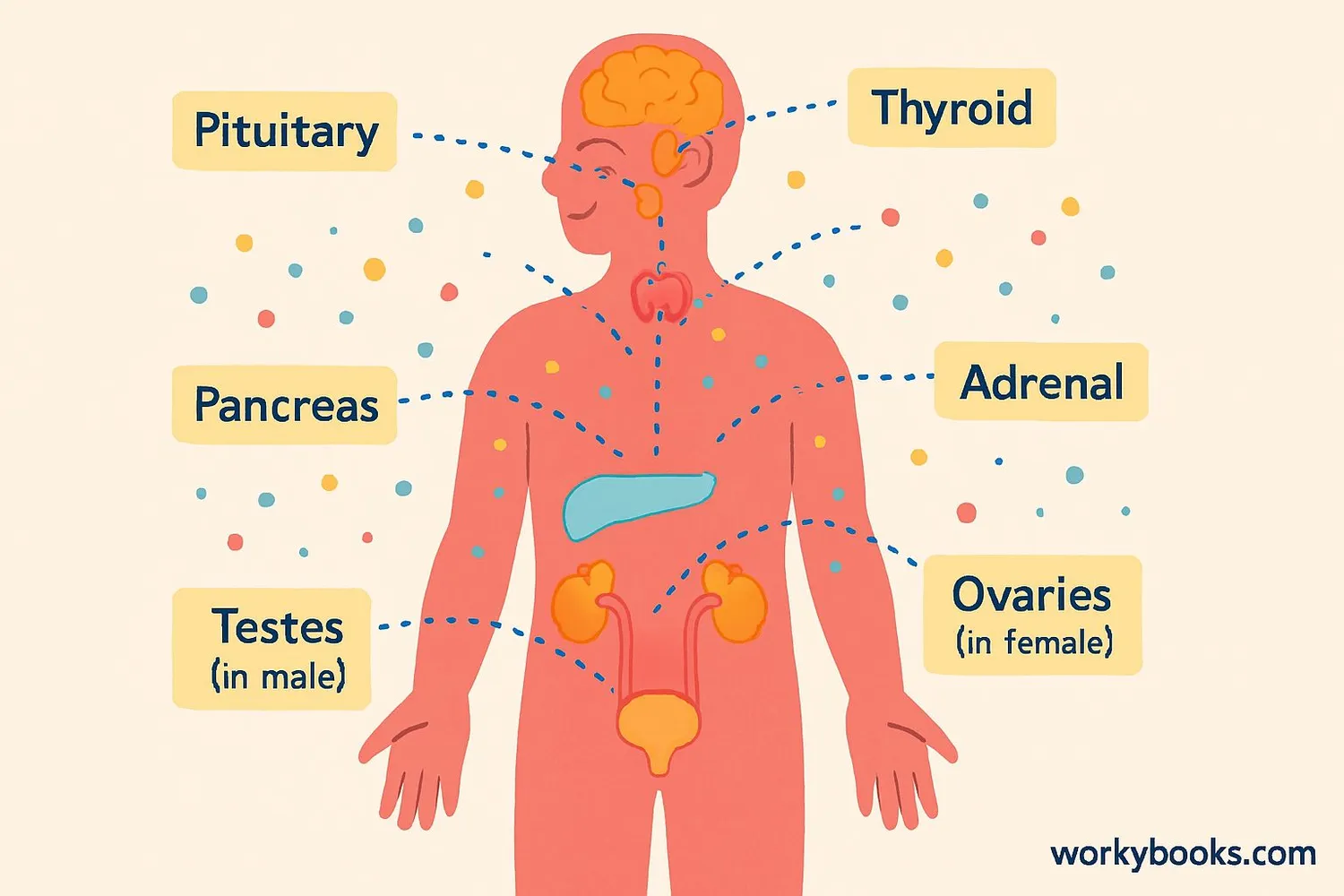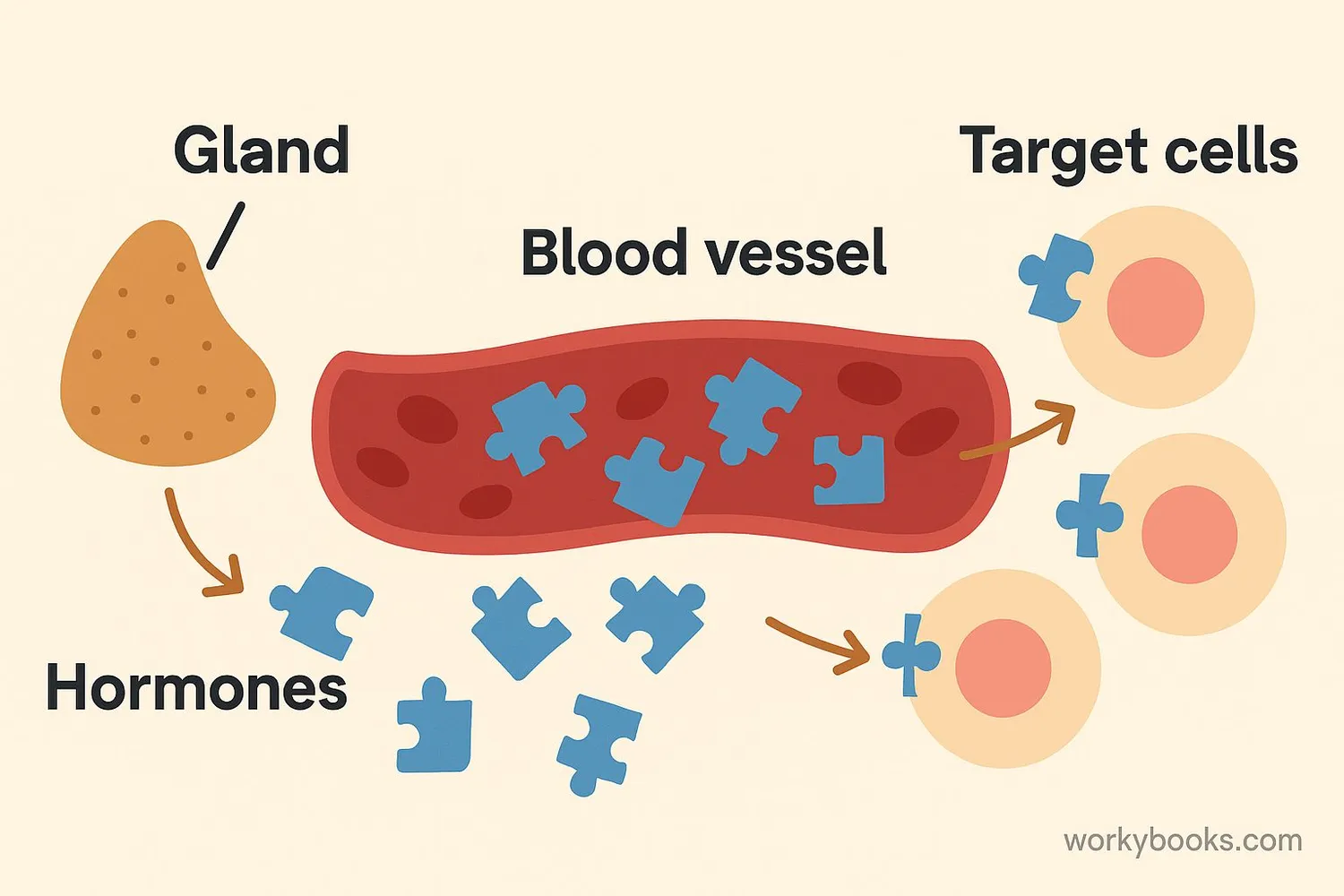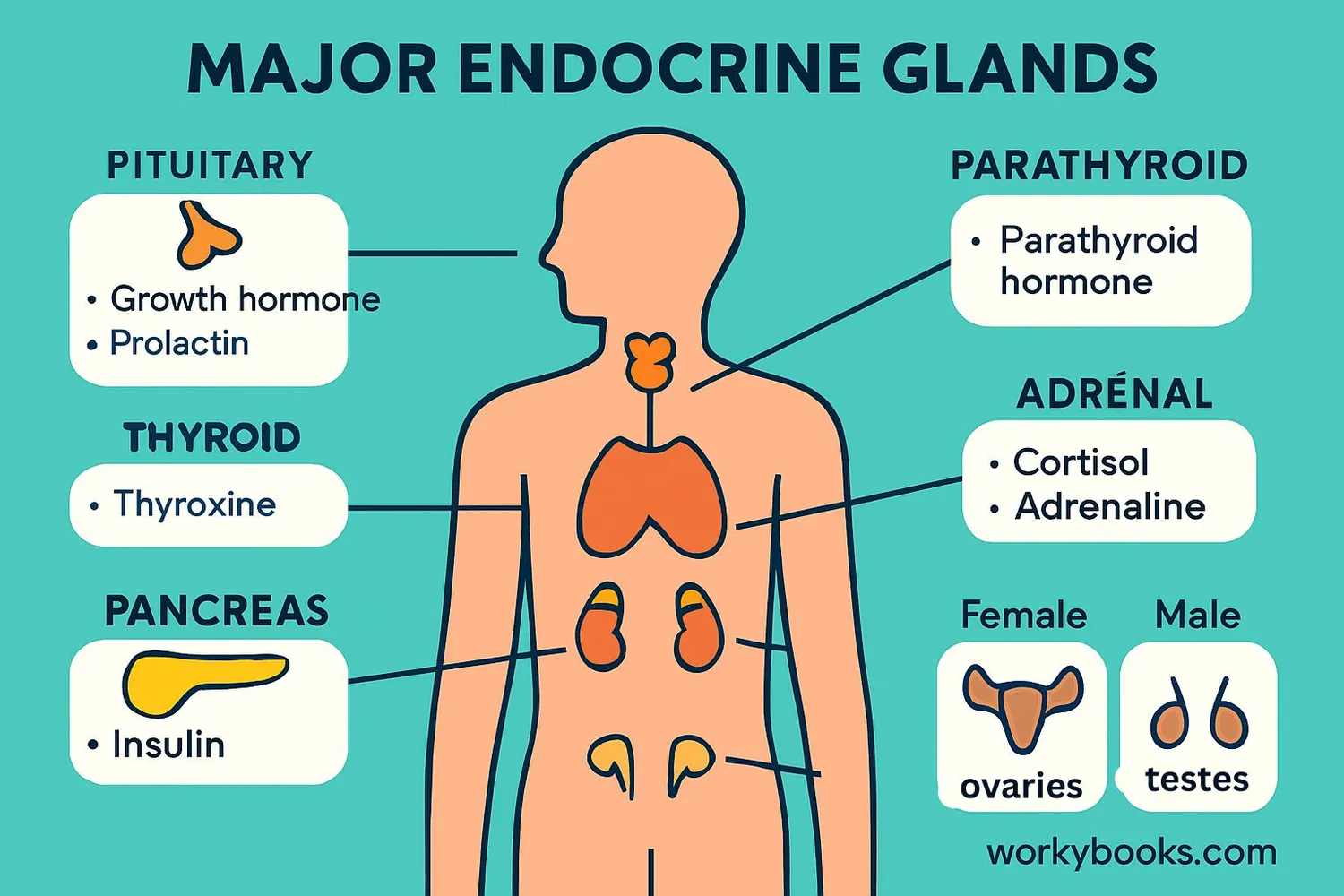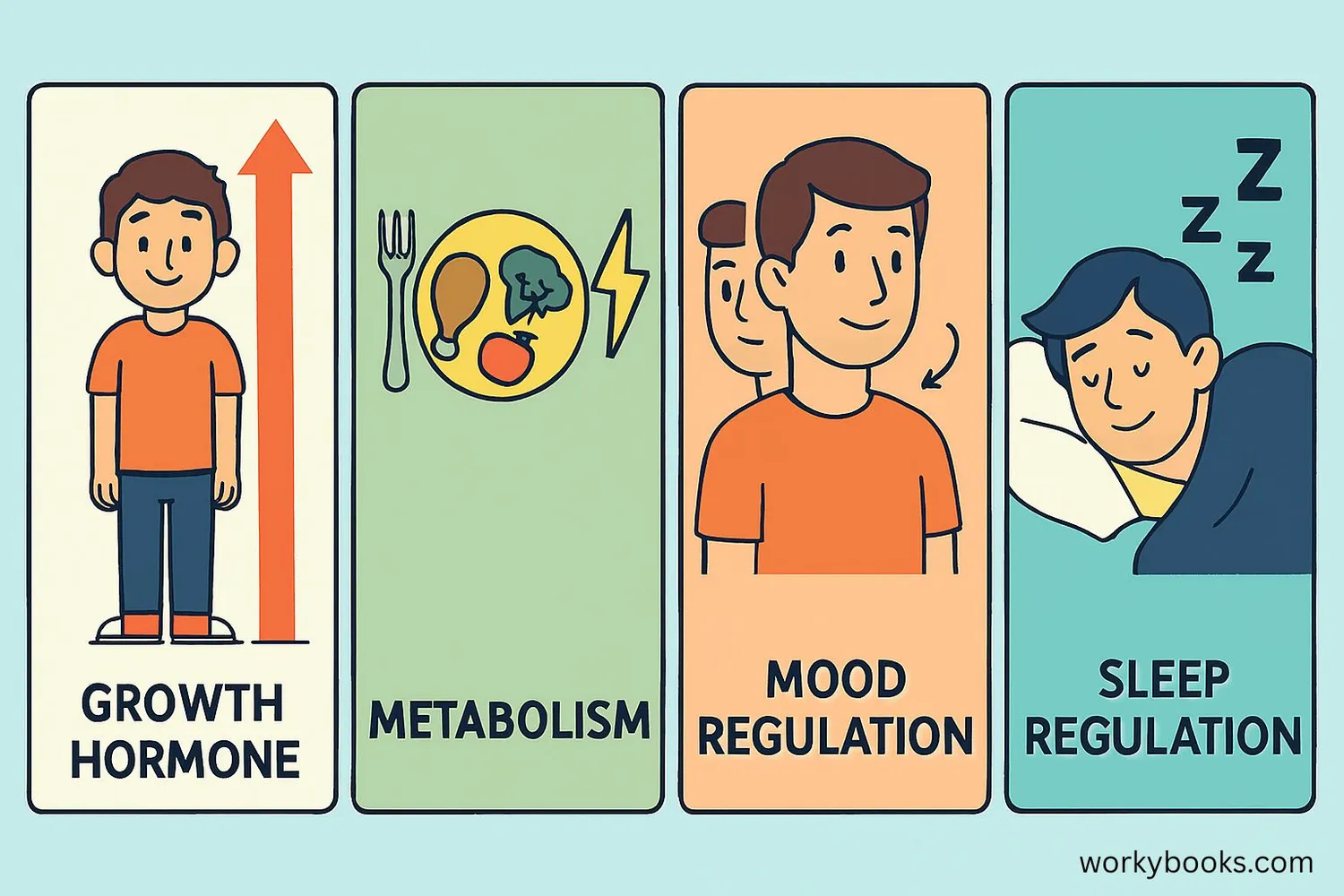The Endocrine System - Definition, Examples, Quiz, FAQ, Trivia
Discover how hormones help your body grow, develop, and stay healthy!
What is the Endocrine System?

The endocrine system is your body's messaging network! It's made up of glands that produce special chemicals called hormones. These hormones travel through your bloodstream to deliver important messages to different parts of your body.
Think of hormones as tiny messengers that tell your body when to grow, when to feel hungry, how to use energy from food, and even how to feel emotions. Unlike your nervous system that sends quick electrical messages, the endocrine system sends slower chemical messages that can last for hours or even days!
Did You Know?
Your body has about 50 different hormones that control everything from your height to your sleep patterns!
How the Endocrine System Works

The endocrine system works like a super-smart delivery service:
Message Sent
A gland produces hormones when it receives a signal from the brain or other body systems
Travel Time
Hormones enter the bloodstream and travel throughout the body
Delivery
Hormones find specific target cells that have matching receptors
Message Received
Target cells respond to the hormonal message
Job Done
Hormones break down after delivering their message
This amazing system helps maintain hormone balance in your body. When hormone levels get too high, the endocrine system slows down production. When levels get too low, it speeds up production. This careful balance is called hormone regulation.
Hormone Speed
Some hormones work in seconds (like adrenaline), while others take hours or days to have an effect (like growth hormone)!
Major Glands and Their Hormones

Your body has several important endocrine glands that work together as part of the glandular system. Each gland produces specific hormones with special jobs:
Pituitary Gland
Known as the "master gland" because it controls other glands. Produces growth hormone and hormones that regulate other glands.
Thyroid Gland
Produces thyroxine which controls your metabolism - how fast your body uses energy from food.
Adrenal Glands
Produce adrenaline (for fight-or-flight response) and cortisol (for stress response).
Pancreas
Produces insulin which helps control blood sugar levels. Problems with insulin lead to diabetes.
Ovaries
Produce estrogen and progesterone, which control female development and reproduction.
Testes
Produce testosterone, which controls male development and reproduction.
Why the Endocrine System is Important

Your endocrine system is essential for keeping your body balanced and healthy. This process is called hormone balance and it affects almost everything you do!
Growth & Development
Controls how you grow from a child to an adult
Metabolism
Regulates how your body uses energy from food
Mood & Emotions
Influences how you feel and respond to situations
When the endocrine system doesn't work properly, it can lead to endocrine disorders like diabetes (when the pancreas doesn't make enough insulin) or thyroid problems (when the thyroid makes too much or too little hormone). That's why maintaining hormone health is so important!
Without your endocrine system, your body wouldn't know:
• When to start puberty
• How to use sugar from food for energy
• How to respond to danger or stress
• When to feel sleepy at night
Endocrine System Quiz
Test your knowledge about the endocrine system with this quiz! Answer all 5 questions to see how much you've learned.
Frequently Asked Questions
Here are answers to some common questions about the endocrine system:
Fun Endocrine System Facts
Discover some amazing facts about your hormone system!
Growth Record
The tallest man in medical history, Robert Wadlow, grew to 8 feet 11 inches due to an overactive pituitary gland that produced too much growth hormone.
Nighttime Production
Your body produces the most growth hormone during deep sleep. This is one reason why children and teenagers need more sleep than adults!
Tiny Amounts, Big Effects
Hormones work in incredibly small amounts. Just one teaspoon of insulin could treat 800 people with diabetes for one day!
Adrenaline Rush
During an adrenaline rush, your heart can pump 4-5 times more blood than normal! This gives your muscles extra oxygen to respond to danger.





